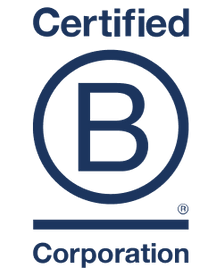A bad lease can break a good business. Yet many cafe owners sign without fully understanding the risks or the fine print. Here are some insights and tips from what we’ve seen and experienced. This isn’t legal advice, but it is practical advice.
Understand what a lease really is
A lease is a firm legal commitment. When you sign it, you are committing to pay that rent every month, for the entire term, whether your cafe is thriving or not. There is no exit clause for slow sales. If you’ve given a personal guarantee, that means you are personally on the hook. Not just your company. You. Your home, your savings, and your assets could be at risk. Take it seriously. Don’t assume that just because you’re a small business, the risk is small. A lease is one of the biggest financial decisions you’ll make.

Before signing a lease
The most important time is before you sign. Once you’re locked in, it’s hard and costly to get out.
Know your numbers. What rent can your business actually support? A good rule of thumb is rent should be under 10% of turnover (ex GST). If you’re forecasting $1m in sales, your rent shouldn’t be more than $100k.
Get a condition report. Take photos. Note the state of every wall, fixture, system. Anything you miss could become your problem later.
Understand make-good clauses. Many leases require you to strip the place back to bare walls at the end. That’s tens of thousands of dollars. Try to cap it or agree to leave the fit-out if it’s high quality.
Ask what’s included. Grease trap, air-con, signage, plumbing. Who maintains what? Who pays for what? Don’t assume.
Ask for the Disclosure Statement early. In most states, you must get this at least 7 days before signing. It outlines all the key financials and terms. Read it carefully.
Do your due diligence. Talk to nearby tenants. Is the landlord responsive? Is the area busy or declining? Any big developments coming?
Check outgoings. Ask for an itemised breakdown. Are you paying for cleaning, security, or centre management? Watch out for hidden costs like land tax or capital works.
Inspect equipment. If the landlord is providing things like air-con or a grease trap, check the condition and clarify who fixes and services it.
Clarify trading hours. Some leases, especially in shopping centres, often will require you to open during fixed hours. That may affect your roster and labour costs.
Check permitted use. Such as espresso bar vs cafe vs food etc. Check early and give yourself as much freedom as possible.
Check outdoor licensed areas. Is outdoor dining permitted? You might be paying for it in the lease, but do the local council allow you to use it?
Are you responsible for the front door? It might sound silly, but are you leasing from the inside of the door or the door plus everything inside? Front doors can be expensive to fix.
Time for growth. Remember, don't get caught in the trap of thinking you’ll be busy from day 1, your rent calculations need to allow you time to grow. We’ve also discussed pricing your coffee correctly from day one.

Tips for negotiation
Negotiation¹ isn’t about being difficult. It’s about protecting your future. It’s also about finding win-win scenarios
Be clear on total occupancy costs. Base rent is just one part. Add outgoings, marketing levies, repairs, and utilities. What’s the real monthly cost?
Negotiate lease length that suits your risk appetite. For a new site, a 2- or 3-year lease with options might make more sense than a straight 5.
Push back on personal guarantees. Especially if you’re already offering a bank guarantee. You’re already giving financial security. A personal guarantee on top often feels like too much.
Ask to reduce the bank guarantee. Many landlords ask for 3 to 6 months of rent. Try negotiating down to 1 or 2 months. In some cases, a solid trading record or upfront payment may help.
Push for favourable rent increases. Annual increases can be fixed (say, 3 percent) or CPI-linked. Sometimes it’s the higher of 4% or CPI (ouch!). Fixed increases offer predictability. Try to avoid ratchet clauses or unreasonable spikes.
Incentives are normal. Don’t be shy to ask for rent-free periods or landlord contributions to fit-out. Especially if the space needs work. Some landlords may insist on a high base rent but then offer incentives like 6 months rent free over the first 3 years. That can still work if it’s structured fairly.
Understand turnover rent. If it kicks in after a certain level, great. But if there’s a high base rent plus turnover rent, you’re taking all the risk while the landlord gets the upside. That’s not fair. Counter with turnover only rent (i.e. share the risk and the upside).
Propose a stepped rent model. For example, start at 70 percent rent in year one, increase to full rent in year two. This gives you time to build trade.
Relocation and demolition clauses. Try to remove them. If not, ask for compensation terms. Moving a cafe isn’t like moving an office.
Exclusivity and signage. If you’re the only cafe, lock that in. If signage is limited, make sure you’ve got what you need.
Lock in your option periods. Make sure you have the right to renew and know the deadlines. Put them in your calendar now.
-v1750311241557.jpg)
If you already have a lease
Even if you’ve signed, there are things you can do.
Know your rights. Retail lease laws in NSW, VIC, and QLD offer strong protections. You can’t be charged hidden fees. You can’t be evicted without a proper process.
Talk to the Small Business Commissioner. They exist to help. If you’re in dispute or feel something is unfair, they can mediate.
Keep a paper trail. Log issues. Email the landlord, don’t just call. Take photos. This matters if there’s ever a disagreement.
Review your lease regularly. Note key dates. Option deadlines. Rent review timings. Don’t miss them.
Talk to your landlord early. If things are tight, discuss options. Many are more flexible than you think, especially if you're upfront. Most don't want an empty tenancy.
Document everything. If you’ve made improvements or added value, make sure it’s acknowledged. This matters in negotiations later.
Look at subleasing. If the lease allows, subletting part of your space can ease the cost burden. Be sure to check the lease terms first.
The importance of a good lawyer
You wouldn’t DIY a coffee machine repair if you’re not a technician. Don’t DIY a lease if you’re not a lawyer. A good lease lawyer will spot risks, explain terms in plain English and protect you from costly traps². They can often help you negotiate better terms, or at least understand the ones you’re agreeing to. Spend a little more up front to save a lot later. Your lease is a 5 or 6 figure commitment. It’s worth proper advice. When it comes to coffee partners or lawyers, you get what you pay for.

Things that concern us
There are some worrying trends in the current leasing environment for cafes and food businesses.
CBD rents haven’t dropped, but foot traffic has. Many city centres are still well below pre-COVID footfall. Yet asking rents haven’t adjusted. This disconnect doesn’t make sense. Landlords may need a certain yield, but cafes can’t create demand out of thin air.
Rent to turnover ratios are creeping up. We’re seeing many operators paying well over the 10 percent rule. That’s dangerous territory, especially with rising costs across the board.
Double-dipping with base rent and turnover rent. Some leases now ask for a high minimum rent plus turnover rent on top. That’s a "heads I win, tails you lose" setup. It’s not sustainable.
Personal guarantees stacking up. We’re not fans of long bank guarantees, but if you’re already giving one, being asked for a full personal guarantee on top feels excessive. There needs to be a reasonable balance of risk.
Outgoings without transparency. We’ve seen cases where tenants are billed for centre promotions or repairs they didn’t approve. Always get a full breakdown and challenge anything unclear.
Cafes are the heartbeat of communities. But too often, lease terms put them on life support. We owe it to the industry and each other to negotiate smarter, share knowledge and push for fairer terms.
If you’re about to sign a lease, pause. Ask questions. Get advice. A good lease won’t guarantee success, but a bad one can all but ensure failure.
Want to learn more? We’d love to hear from you.
Footnotes:
- Sara DeForest, ‘Expert Tips for Negotiating and Securing the Best Restaurant Lease’, Merchant Blog Jan 7, 2025
- Emma Heuston, ‘I’m a Cafe Owner. What Should I Know about my Retail Lease?’, Legal Vision March 14, 2017



